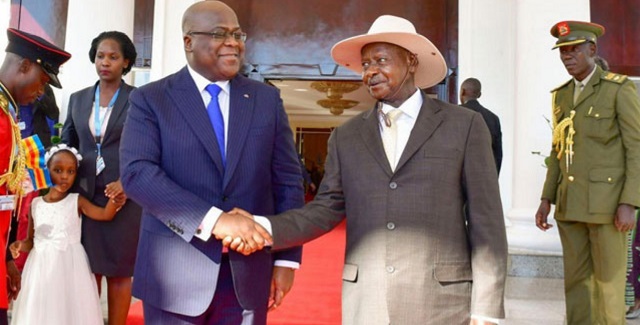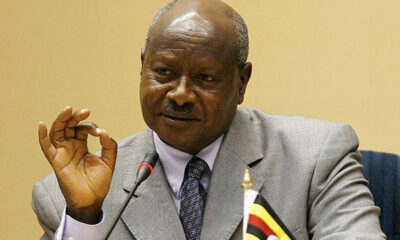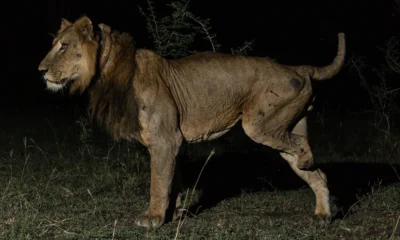Just as we started mimicking some French phrases ahead of our acquiring French visas for next year’s Olympics, authorities in Kinshasa and Kampala last week announced visa-free travel between Uganda and the Democratic Republic of Congo!
So learning French has become even more urgent for Ugandans, as crossing to DRC is more realistic than flying to France; you just drive a car or board a truck.
Moreover, besides going to DRC being economically and socially more beneficial than going to France, the French you speak in Kinshasa doesn’t have to be half as good as that in Paris. Congo French is as atrocious as Congo Kiswahili to a connoisseur’s ear. But it is French all the same, far better than our no French.
The White Fathers (Peres Blancs) couldn’t make French popular here because the English-speaking British won the ultimate prize of being Uganda’s colonisers, and so the country couldn’t become Catholic territory. However, some very old Ugandans still call Sunday “Dimansi,” their way of pronouncing Dimanche.
Besides the greeting “Bonjour”, another “French” word or name most Ugandan know, but which cannot resonate with any French ear, is “Mapeera”, the first our grandparents heard when the first Catholic missionary landed by canoe from Tanganyika on February 17, 1879.
The 26-year-old Rev Fr Simeon Lourdel was being addressed as Mon Pere – My Father — by his assistant Bro Delmas Amans. So, Ugandans simply called the pioneer Catholic missionary Mapeera — guavas — which were planted in plenty around Catholic missions.
Next June 3, if you are among the million pilgrims coming from all over Africa to Kampala for Martyr’s Day, you now already know that the imposing white building in the city centre by that name is in honour of that religious young Frenchman who recruited, trained and led the famous 22 Uganda Martyrs.
For Mapeera’s everlasting presence in Uganda (even the country’s largest banking chain, Centenary Bank, was started by the Catholic church he established here), and our newfound love for athletics, over which we hope to brag in France next year, shouldn’t blind us to the bigger reason we have to learn French. We are talking of the opportunities that come with freely accessing DRC.
By the way, many Ugandan men living near the DRC border have been living a blissful double life of having a wife on either side. But still, they have to illegally cross the border every other day, because the cheapest visa costs $50, and to get a visa in the first place you need a passport, which most of our polygamists don’t have. Imagine having to sneak out to go to your family home!
This is very serious by the way — having two farms in two different countries, and if you have only one farm, chances are that it is in DRC while your first wife and family are in Uganda.
It is serious because a lot of the food eaten in the densely populated southwestern Uganda and even up to Kampala is grown in farms in DRC, which belong to Ugandan families.
Many Ugandans in Kampala, who don’t know this, wonder why their government invests in securing peace in eastern DRC – and wonder loudly even as they enjoy French(!) fries from potatoes grown on the other side by our Congolese wives, cheaply.
Uganda enjoys a huge trade balance with DRC, thanks to our infant industries exporting domestic consumables and building materials.
For some not-so-obvious reasons, though, Congolese men haven’t expressed that much interest in Ugandan women. Economists are yet to figure out in whose favour this non-monetary trade imbalance is.
The exception here is the few migrant male musicians settled in Kampala, who probably do it to sort out their immigration issues. Of recent, the most sought-after guitarist in Kampala has been Monsieur Charmant (Mr Charming). May we get more of his like now that they don’t have to hide from our immigration officers!
Ugandan ladies have to brace for some serious competition, though, to be posed by low-maintenance sisters from across, in abundant numbers. In my neighbourhood, our local carpenter, a man of very modest means, is married to one and she makes neck turns wherever she passes. Let us pray for domestic peace, as our wealthy guys rush to learn some romantic French phrases.
Buwembo is a Kampala-based journalist. E-mail:buwembo@gmail.com


 Sports1 day ago
Sports1 day ago
 Tech2 days ago
Tech2 days ago
 Metro2 days ago
Metro2 days ago
 Metro15 hours ago
Metro15 hours ago





























